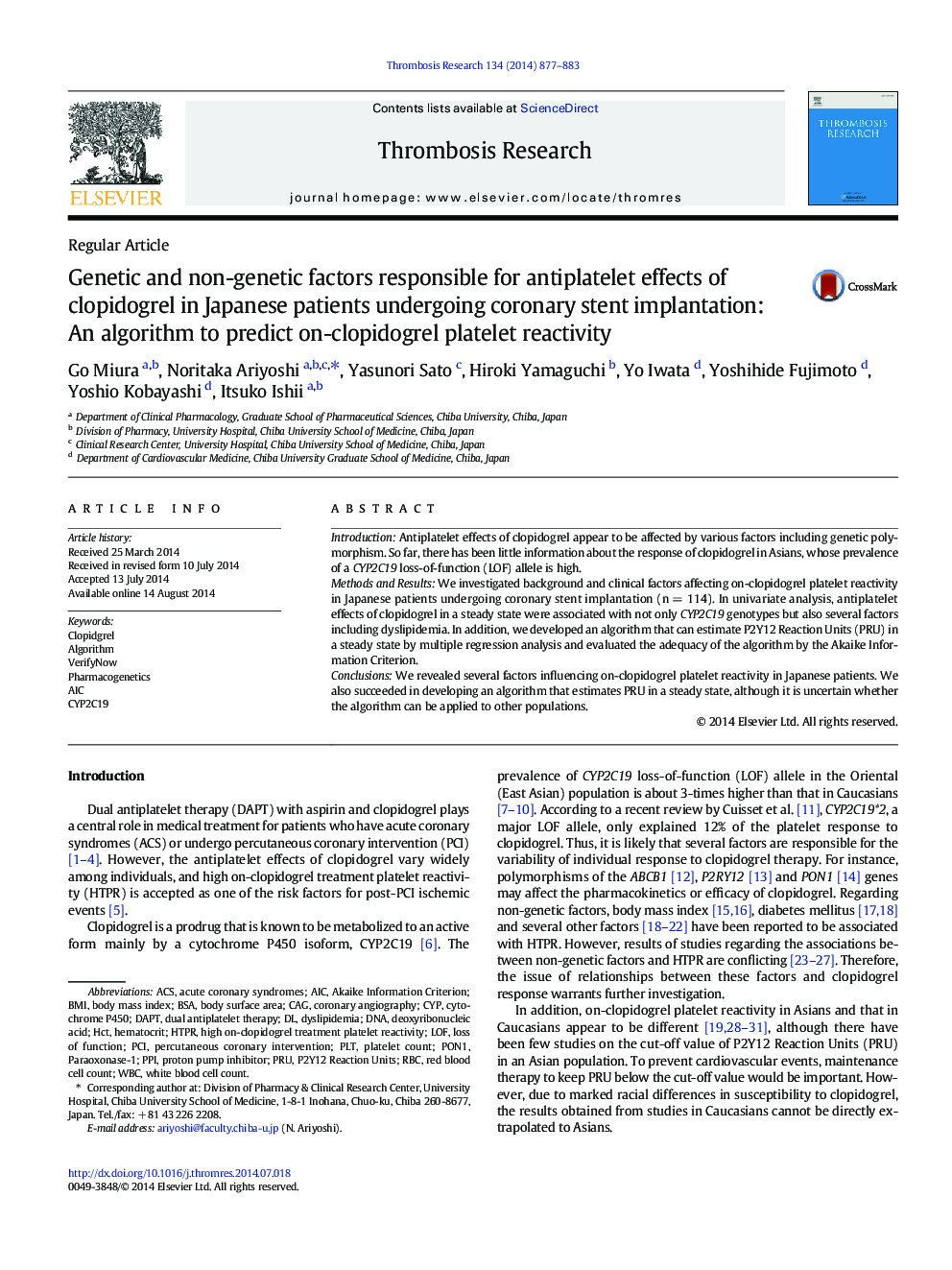| Article ID | Journal | Published Year | Pages | File Type |
|---|---|---|---|---|
| 6001101 | Thrombosis Research | 2014 | 7 Pages |
â¢We revealed factors associated with responses to clopidogrel in Japanese patients.â¢Results may provide useful knowledge for Asians receiving clopidogrel therapy.â¢An algorithm that can estimate P2Y12 Reaction Units in each patient was developed.â¢The variables forming the algorithm were evaluated by Akaike Information Criterion.
IntroductionAntiplatelet effects of clopidogrel appear to be affected by various factors including genetic polymorphism. So far, there has been little information about the response of clopidogrel in Asians, whose prevalence of a CYP2C19 loss-of-function (LOF) allele is high.Methods and ResultsWe investigated background and clinical factors affecting on-clopidogrel platelet reactivity in Japanese patients undergoing coronary stent implantation (n = 114). In univariate analysis, antiplatelet effects of clopidogrel in a steady state were associated with not only CYP2C19 genotypes but also several factors including dyslipidemia. In addition, we developed an algorithm that can estimate P2Y12 Reaction Units (PRU) in a steady state by multiple regression analysis and evaluated the adequacy of the algorithm by the Akaike Information Criterion.ConclusionsWe revealed several factors influencing on-clopidogrel platelet reactivity in Japanese patients. We also succeeded in developing an algorithm that estimates PRU in a steady state, although it is uncertain whether the algorithm can be applied to other populations.
